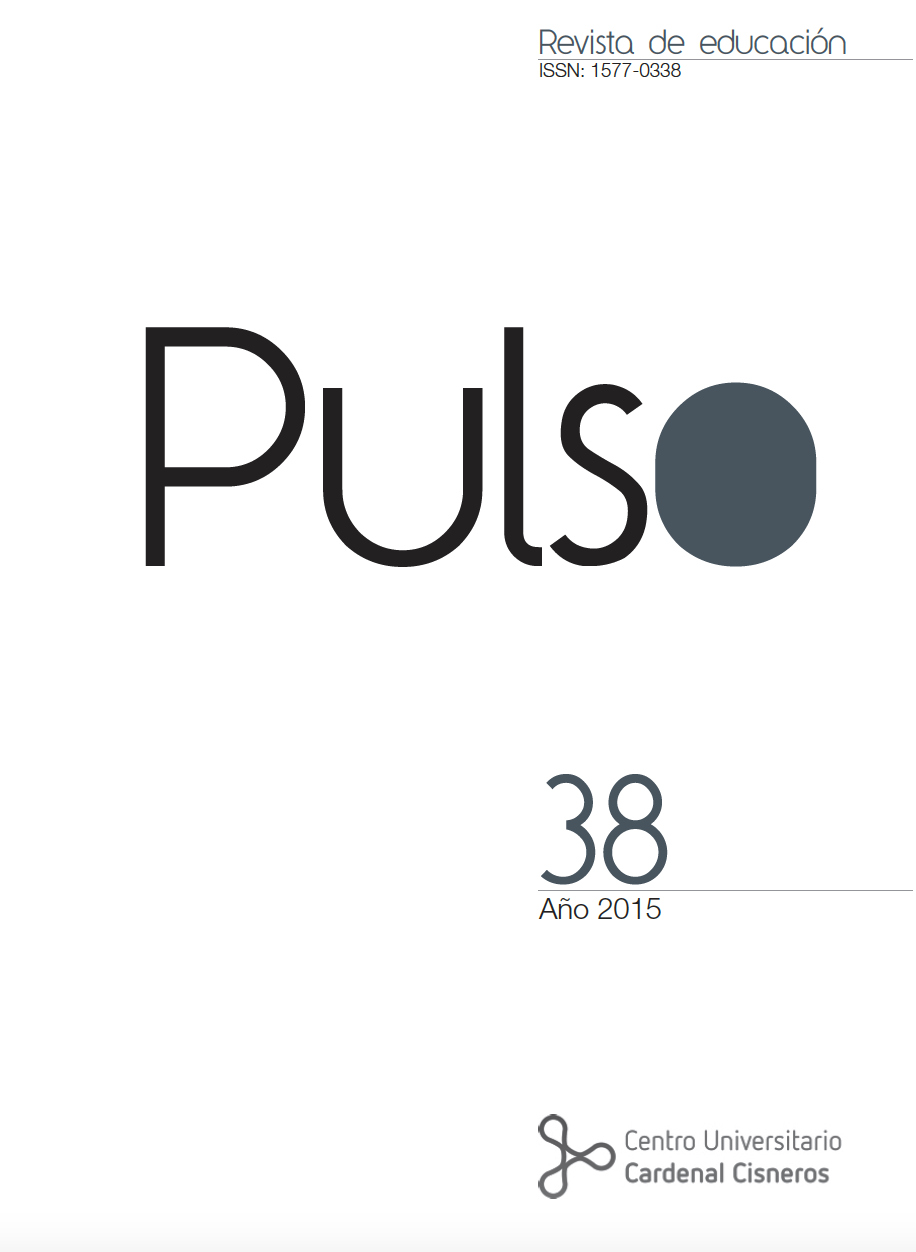The frustration as a therapeutic resource in the training of art therapist
DOI:
https://doi.org/10.58265/pulso.5067Keywords:
Frustration, Art therapy, Formation, Personal Resources, Resilience, CountertransferenceAbstract
This investigation explores and describes the presence of frustration in art therapy patients and its effect on students doing their internship in art therapy, in order to contribute to the academic and therapeutic education of future professionals of this discipline. For the purpose of this investigation, we interviewed 25 students with open questions. These students, senior class 2012-2014, had finished or were about to finish their internships as part of the Master’s Program in Art Therapy and Art Education for Social Inclusion at the Autonomous University of Madrid, the Complutense University and the University of Valladolid. The information collected has been systematized and organized in categories to carry out a qualitative and quantitative analysis. The investigation outcomes show how patients express their frustration; identify the personal resources that patients use during work sessions to manage their frustration; identify the effect that the patient’s frustration has on the student doing the intership in art therapy; recognize the variables that must be taken into account for the art therapeutic device to address the patient frustration; and finally raise four different types of interventions regarding frustration managment , within the art therapeutic process.
Downloads
References
Consuegra, A. (2010). Diccionario de psicología. Bogotá. Bogotá: Ecoe Ediciones.
Freud, S. (1912). Sobre los tipos de contracción de neurosis. En Obras Completas (Vol. 12, págs. 233-246). Buenos Aires: Amorrortu.
Galimberti, U. (2002). Diccionario de Psicología. México: Siglo Veintiuno Editores.
Greenberg, L. S. y Paivio, S. C. (2012). Trabajar con las emociones en psicoterapia. Barcelona: Paidós.
Gruhl, M. (2009). El arte de rehacerse: La resiliencia. Santander: Sal Terrae.
Hernández, S. R., Fernández, C. C. y Baptista, L. M. (2010). Metodología de la investigación. México, DF: Mc Graw Hill.
Klein, J.-P. (2012). Resistencia, resistencias. En J.-P. Klein., M. Bassols y E. Bonet, Arteterapia. La creación como proceso de transformación (págs. 166-171). Barcelona: Octaedro S.L.
Klein, M. (1987). El psiconalisis de Niños. Barcelona: Paidós.
Kramer, C. (1969). La frustración. Buenos Aires: Troquel S.A.
Lahey, B. B. (2007). Introducción a la psicología. México, DF: McGraw-Hill.
Laplanche, J. y Pontalis, J.-B. (2004). Diccionario de Psicoanálisis. Buenos Aires: Paidós.
López Estrada, R. E. y Deslauriers, J.-P. (2011). La entrevista cualitativa como técnica para la investigación en Trabajo Social. Margen, 61, 1-19.
López, M. y Martínez, N. (2006). Arteterapia. Conocimiento interior a través de la expresión artística. Madrid: Tutor.
Marxen, E. (2011). Diálogos entre arte y terapia: Del "arte psicótico" al desarrollo de la arteterapia y sus aplicaciones. Barcelona: Gedisa S.A.
Melillo, A., Estamatti, M. y Cuestas, A. (2008). Algunos fundamentos psicológicos del concepto de resiliencia. En A. Melillo y E. N. Suárez Ojeda, Resiliencia: Descubriendo las propias fortalezas (págs. 83-102). Buenos Aires: Paidós.
Myers, D. G. (2005). Psicología Social. México, DF: McGraw Hill.
Puig, G. y Rubio, J. L. (2011). Manual de resiliencia aplicada. Barcelona: Editorial Gedisa S.A.
Rosenzweig, S. (1944). An outline of frustration theory. Personality and the behavior disorders, 1, 379-388.
Shaffer, D. R. (2002). Desarrollo social y de la personalidad. Madrid: Thomson.
Whittaker, J. O. (1977). Psicología. México, DF: Interamericana.
Winnicott, D. (2008). Realidad y Juego. Barcelona: Gedisa S.A.
Downloads
Published
How to Cite
Issue
Section
License
Copyright (c) 2022 Pulso. Revista de educación

This work is licensed under a Creative Commons Attribution-NonCommercial-NoDerivatives 3.0 Unported License.
This journal offers immediate open access to its content based on the idea that offering readers free access to research favours a global exchange of knowledge.
Papers are published in the electronic version of the journal under a Creative Commons License: Attribution-NonCommercial-No derivatives 4.0 International
Authors are allowed and encouraged to promote the post-print version (reviewed and accepted for publication version) of their work online before publishing them. This favours their earlier circulation and dissemination and thus a possible increase in their citation and reach among the academic community.














